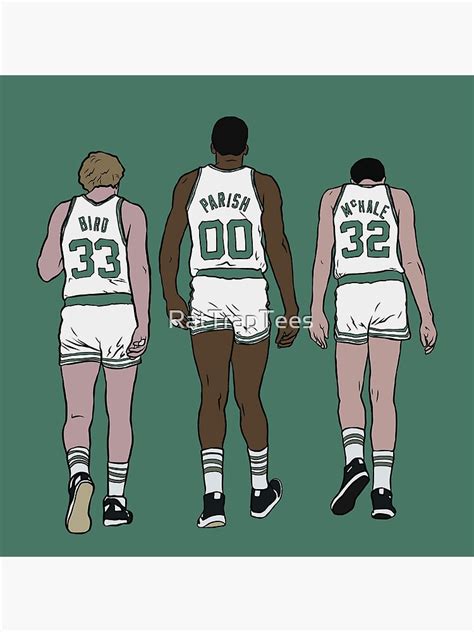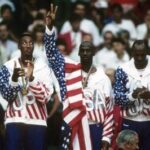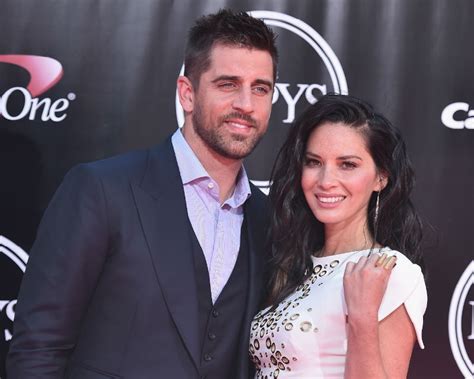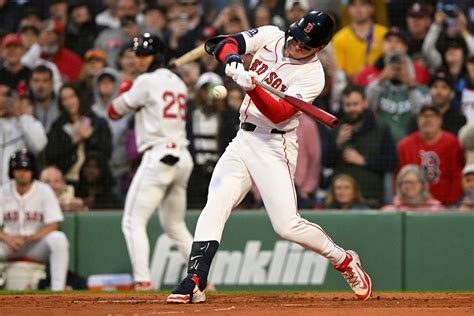
Robert Williams III should be traded if he’s unhappy in Boston, according to Celtics legend Larry Bird. Bird, speaking at the Celtics Shamrock Foundation Gala, didn’t mince words when addressing Williams’ situation, suggesting that a player’s contentment is paramount to team success.
Bird to Celtics: Unhappy Williams Should Be Traded
Boston Celtics legend Larry Bird delivered a straightforward message regarding center Robert Williams III’s future with the team: if the player is unhappy, the Celtics should trade him. Bird’s comments came during the Celtics Shamrock Foundation Gala, where he addressed the current state of the team and the importance of player satisfaction.
“I’m not around them enough to know, but it sounds like he’s not happy,” Bird stated, as reported by NBC Sports Boston. “You’ve got to move him. You can’t have guys walking around with their heads down. You’ve got to get them out of there.”
Bird’s blunt assessment reflects a long-held belief in the NBA that a disgruntled player can negatively impact team chemistry and performance. While Williams is a valuable asset, known for his exceptional shot-blocking and athleticism, Bird emphasized that a player’s mental state is crucial.
“If he’s not happy, you’ve got to move him,” Bird reiterated. “It’s just that simple. You can’t have guys moping around. It just doesn’t work.”
The comments raise questions about Williams’ current mindset and his role within the Celtics organization. Williams, affectionately known as “Time Lord” by fans, has been hampered by injuries throughout his career, including a significant knee injury that required surgery and sidelined him for extended periods.
Williams’ Injury History and Role
Robert Williams III’s career has been marked by flashes of brilliance interspersed with frustrating injury setbacks. Drafted by the Celtics in 2018, Williams quickly established himself as an elite rim protector and a dynamic presence on the defensive end. His ability to alter shots, grab rebounds, and run the floor made him a valuable asset to the team.
However, Williams’ availability has been a constant concern. He has missed significant time due to various injuries, including knee issues, hip problems, and other ailments. The most significant blow came in March 2022 when he suffered a torn meniscus in his left knee, requiring surgery.
The surgery forced Williams to miss a portion of the regular season and the early rounds of the playoffs. While he returned later in the postseason, he was clearly not at full strength, and his effectiveness was limited. Last season he also had complications that limited his game time.
Despite the injury challenges, Williams has remained a key component of the Celtics’ defensive scheme when healthy. His ability to switch onto smaller players, protect the paint, and create turnovers makes him a unique and valuable player. However, his injury history has raised questions about his long-term durability and his ability to consistently contribute at a high level.
The Celtics’ Current Roster and Future Outlook
The Celtics’ roster has undergone significant changes in recent years, with the additions of key players like Kristaps Porzingis and Jrue Holiday. These moves have bolstered the team’s championship aspirations but have also created potential questions about player roles and playing time.
The acquisition of Porzingis, in particular, could impact Williams’ role on the team. Porzingis is a versatile big man who can score both inside and outside, and he also provides rim protection. His presence could potentially reduce Williams’ playing time and alter the team’s offensive and defensive strategies.
Furthermore, the Celtics already have Al Horford, another experienced and versatile big man, on the roster. Horford has been a key contributor to the team for several years, and he provides valuable leadership and stability. The presence of Porzingis and Horford could further complicate Williams’ role and make it more difficult for him to get consistent playing time.
Bird’s comments suggest that the Celtics should prioritize Williams’ happiness and consider trading him if he is not satisfied with his role. However, trading Williams would not be an easy decision. He is a valuable asset, and finding a suitable replacement would be challenging. The Celtics would need to carefully weigh the potential benefits of trading Williams against the risk of losing a key contributor.
Analyzing Bird’s Perspective
Larry Bird’s perspective carries significant weight within the Celtics organization and among NBA fans in general. As one of the greatest players in NBA history, Bird has a deep understanding of what it takes to build a successful team. His comments reflect a belief that player satisfaction is essential for team success.
Bird’s emphasis on player happiness is not unique to him. Many coaches and general managers believe that a positive team environment is crucial for achieving peak performance. Disgruntled players can disrupt team chemistry, create locker room issues, and ultimately detract from the team’s overall success.
However, balancing player happiness with the needs of the team is a complex challenge. Sometimes, a player’s individual desires may not align with the team’s best interests. In those situations, difficult decisions must be made.
The Celtics’ decision regarding Williams’ future will likely depend on several factors, including his performance, his attitude, and the team’s overall roster construction. The Celtics will need to carefully assess all of these factors before making a final determination.
Potential Trade Scenarios
If the Celtics decide to trade Robert Williams III, several potential trade scenarios could emerge. Other teams may be interested in acquiring Williams’ services, given his defensive prowess and athleticism.
One potential scenario could involve trading Williams to a team that is looking to bolster its frontcourt defense. Several teams around the league are in need of a shot-blocking, rebounding big man, and Williams could be a valuable addition to their roster.
Another possibility could involve trading Williams to a team that is looking to acquire young talent. The Celtics could potentially package Williams with other assets in exchange for a promising young player who fits their long-term plans.
Ultimately, the Celtics’ decision on whether or not to trade Williams will depend on the offers they receive from other teams. The Celtics will need to carefully evaluate each offer and determine which one provides the best value for the organization.
The Impact on Celtics’ Championship Hopes
Robert Williams III’s future with the Celtics could have a significant impact on the team’s championship hopes. If Williams remains with the team and stays healthy, he could be a key contributor to a championship run. His defensive presence and athleticism could be invaluable in the playoffs.
However, if Williams is traded, the Celtics would need to find a suitable replacement. Losing Williams would weaken the team’s defense and potentially make it more difficult to compete with the top teams in the league.
The Celtics’ success will ultimately depend on their ability to build a cohesive team with a positive attitude. If the Celtics can create a supportive environment where all players feel valued and appreciated, they will have a better chance of achieving their championship goals. Whether Williams is a part of that future remains to be seen.
Fan Reaction and Media Coverage
Larry Bird’s comments regarding Robert Williams III have generated significant buzz among Celtics fans and in the media. Many fans are curious to see how the Celtics will respond to Bird’s remarks and what the future holds for Williams.
Some fans agree with Bird’s assessment that Williams should be traded if he is unhappy. They believe that it is important for the Celtics to maintain a positive team environment and that a disgruntled player could disrupt team chemistry.
Other fans are more hesitant to trade Williams. They believe that he is a valuable asset and that his defensive presence is essential to the team’s success. They argue that the Celtics should try to work things out with Williams and find a way to keep him happy.
The media coverage of Bird’s comments has been extensive. Many sports analysts have weighed in on the situation, offering their opinions on whether or not the Celtics should trade Williams. The debate is likely to continue in the coming weeks and months.
Williams’ Contract and Trade Value
Robert Williams III signed a four-year, $48 million contract extension with the Celtics in August 2021. The contract runs through the 2025-26 season. While his salary is not exorbitant by NBA standards, his injury history impacts his overall trade value.
Teams considering trading for Williams would need to weigh his potential contributions against the risk of him missing significant time due to injury. His contract is also a factor, as teams would need to have the salary cap space to accommodate his salary.
Despite the injury concerns, Williams’ trade value remains significant due to his defensive skills and athleticism. Teams looking to improve their frontcourt defense would likely be willing to take a chance on him. However, the Celtics would likely need to lower their asking price to reflect his injury history.
The Importance of Team Chemistry
Larry Bird’s emphasis on player happiness underscores the importance of team chemistry in the NBA. A team with good chemistry is more likely to perform at its best, even if it lacks individual superstars.
Team chemistry is built on mutual respect, trust, and communication. Players who get along well with each other are more likely to work together effectively on the court. They are also more likely to support each other during difficult times.
Disgruntled players can disrupt team chemistry and create a negative environment. Their negativity can spread to other players and ultimately impact the team’s performance. That’s why it’s so important for teams to address player dissatisfaction and find ways to keep everyone happy.
The Role of Management
The Celtics’ management team, led by president of basketball operations Brad Stevens, will play a crucial role in determining Robert Williams III’s future with the team. Stevens and his staff will need to carefully assess Williams’ situation and make a decision that is in the best interests of the organization.
Stevens has a reputation for being a thoughtful and analytical decision-maker. He is likely to weigh all of the factors involved before making a final determination on Williams’ future. He will also consult with head coach Joe Mazzulla and other members of the coaching staff to get their input.
The Celtics’ management team will need to balance the team’s short-term and long-term goals when making a decision on Williams’ future. They will need to consider the impact of trading Williams on the team’s championship hopes, as well as the potential benefits of acquiring young talent or draft picks in a trade.
Ultimately, the decision on Williams’ future will be a complex one. The Celtics’ management team will need to carefully weigh all of the factors involved before making a final determination.
Robert Williams III’s Perspective
While Larry Bird’s comments and the ensuing media discussion focus on the Celtics’ perspective, Robert Williams III’s feelings and desires are equally important. It’s crucial to consider the situation from his point of view.
Williams may indeed be frustrated with his role, his playing time, or his injury situation. He may feel that he is not being utilized to his full potential, or that his contributions are not being fully appreciated. It’s also possible that he enjoys being in Boston and wants to stay with the Celtics, even if he has some concerns.
Without hearing directly from Williams, it’s impossible to know his true feelings. However, it’s important to acknowledge that he has a voice in this process. The Celtics should engage in open and honest communication with Williams to understand his perspective and find a solution that works for both parties.
The Future of the Celtics’ Frontcourt
Regardless of what happens with Robert Williams III, the Celtics’ frontcourt will be a key area to watch in the coming years. The team has several talented big men on the roster, including Kristaps Porzingis, Al Horford, and Luke Kornet.
Porzingis’ arrival adds a new dimension to the Celtics’ offense, as he can stretch the floor and score from anywhere on the court. Horford remains a valuable contributor, providing leadership and versatility. Kornet is a reliable backup center who can provide solid minutes when needed.
The Celtics will need to find the right balance between these players to maximize their potential. They will need to determine which combinations work best together and how to utilize each player’s strengths. The future of the Celtics’ frontcourt will depend on their ability to effectively manage and develop these talented big men.
Bird’s Legacy and Influence
Larry Bird’s comments carry significant weight not only because of his legendary status with the Celtics but also because of his deep understanding of the game. His blunt honesty is a trademark, and his words often resonate with players, coaches, and fans alike.
Bird’s legacy extends far beyond his playing days. He has served as a coach, general manager, and executive in the NBA, and he has always been known for his sharp basketball mind and his unwavering commitment to winning.
His influence on the Celtics organization is undeniable. He is a revered figure in Boston, and his opinions are highly valued by the team’s management and players. Bird’s comments on Robert Williams III’s situation are likely to be taken seriously by everyone involved.
The Importance of Player Development
The Celtics’ ability to develop their players will be crucial to their long-term success. Robert Williams III is a prime example of a player who has shown tremendous growth and improvement over the years.
Williams entered the NBA as a raw prospect with immense potential. Through hard work and dedication, he has developed into an elite defender and a valuable contributor on offense. The Celtics’ coaching staff deserves credit for helping Williams reach his full potential.
Player development is an ongoing process. The Celtics must continue to invest in their players and provide them with the resources and support they need to improve. This includes providing them with individual coaching, training, and mentoring.
By prioritizing player development, the Celtics can ensure that they have a pipeline of talented players who can contribute to the team’s success for years to come.
The Financial Implications
Trading Robert Williams III would have financial implications for the Celtics. While his salary is not among the highest on the team, it still represents a significant financial commitment.
Trading Williams could free up cap space that the Celtics could use to sign other players. However, it could also create a hole in the team’s roster that they would need to fill.
The Celtics would need to carefully weigh the financial implications of trading Williams against the potential benefits of acquiring other players or draft picks. They would also need to consider the impact of trading Williams on the team’s salary cap situation in future years.
The Perspective of Other Players
The Robert Williams III situation could also impact the perspective of other players on the Celtics’ roster. Players may be watching closely to see how the Celtics handle the situation and whether they prioritize player happiness.
If the Celtics decide to trade Williams, other players may feel that the team is not committed to their well-being. This could potentially lead to dissatisfaction among other players and make it more difficult to attract free agents in the future.
On the other hand, if the Celtics find a way to keep Williams happy and productive, other players may feel that the team values their contributions and is committed to creating a positive team environment.
The Celtics must be mindful of the message they send to other players when making a decision on Williams’ future. They must ensure that they are creating a culture where all players feel valued and appreciated.
The Importance of Communication
Open and honest communication will be essential in resolving the Robert Williams III situation. The Celtics must communicate effectively with Williams to understand his perspective and find a solution that works for both parties.
They must also communicate effectively with other players on the roster to ensure that they understand the team’s goals and priorities. By fostering open communication, the Celtics can create a positive and supportive environment where all players feel valued and appreciated.
Communication is a two-way street. The Celtics must be willing to listen to Williams’ concerns and address them in a timely and respectful manner. They must also be willing to share their own thoughts and feelings with Williams.
By prioritizing communication, the Celtics can build trust and understanding, which are essential for a successful team.
The Ultimate Goal: A Championship
Ultimately, the Celtics’ goal is to win a championship. Every decision they make, including the one on Robert Williams III’s future, should be made with that goal in mind.
The Celtics have a talented roster and a strong coaching staff. They are capable of competing for a championship in the coming years. However, they must make smart decisions and create a positive team environment to maximize their chances of success.
The Robert Williams III situation is just one piece of the puzzle. The Celtics must address it effectively to ensure that they are on the right track to achieving their ultimate goal.
FAQ Section:
1. What exactly did Larry Bird say about Robert Williams III’s situation?
Larry Bird stated that if Robert Williams III is unhappy with the Celtics, the team should trade him. He emphasized that a player’s unhappiness can negatively impact team chemistry and performance. He explicitly said, “If he’s not happy, you’ve got to move him. It’s just that simple. You can’t have guys moping around. It just doesn’t work.”
2. Why is Robert Williams III potentially unhappy?
While the exact reasons for Williams’ potential unhappiness are not explicitly stated, several factors could contribute. These include his history of injuries, which have limited his playing time and consistency, the acquisition of Kristaps Porzingis, which might reduce his role, and general dissatisfaction with his current situation within the team’s dynamic.
3. How does Kristaps Porzingis’ arrival affect Robert Williams III’s role?
Kristaps Porzingis is a versatile big man who can score both inside and outside, while also providing rim protection. His presence may directly impact Williams’ playing time and alter the Celtics’ strategies, potentially reducing Williams’ opportunities and on-court impact.
4. What are some potential trade scenarios for Robert Williams III?
Potential trade scenarios include trading Williams to a team looking to bolster its frontcourt defense or to a team seeking young talent. The Celtics could package Williams with other assets for a promising young player who fits their long-term plans. The final decision will depend on the offers received and the value they bring to the organization.
5. What is the Celtics’ management likely to consider when deciding Williams’ future?
The Celtics’ management, led by Brad Stevens, will likely consider factors such as Williams’ performance, attitude, injury history, and contract. They will also weigh the team’s short-term and long-term goals and the overall impact on team chemistry. Stevens will consult with head coach Joe Mazzulla and other staff members before making a final determination in the best interest of the Celtics.









